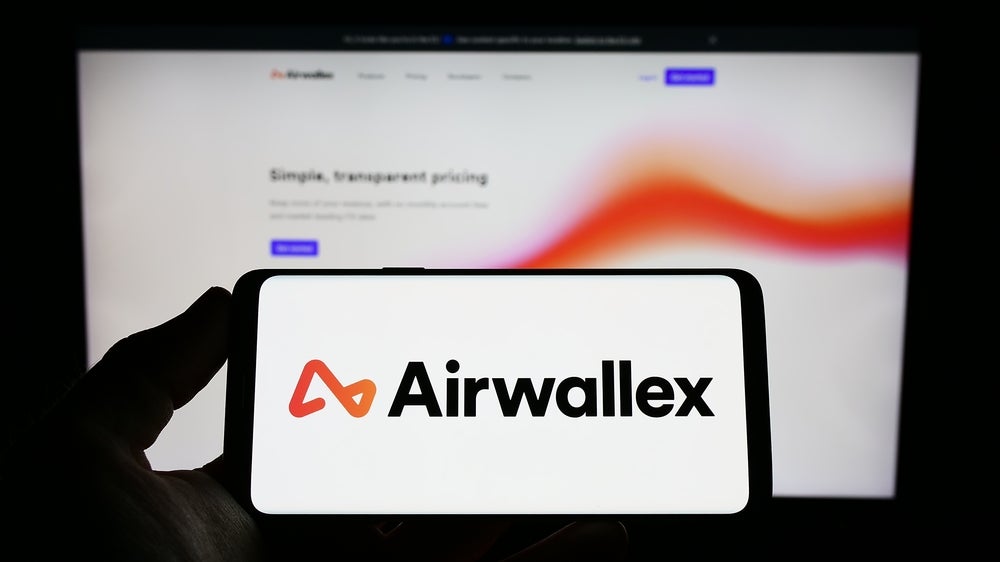
Bitcoin is prominent as Electronic Payments International lists the top five terms tweeted on payment tech in April 2020, based on data from GlobalData’s Influencer Platform. The top tweeted terms are the trending industry discussions happening on Twitter by key individuals (influencers) as tracked by the platform.
1. Bitcoin – 1,267 mentions
From bitcoin funds being listed on the global stock exchange, to it being considered as a reliable store value like gold and the US dollar, to bitcoin coming of age, were popularly discussed in April 2020. According to an article shared by Tyler Winklevoss, a cryptocurrency and bitcoin investor, the first public bitcoin fund was listed on the Toronto Stock Exchange. The co-founder of Gemini, a crypto platform, further added that Gemini was selected as custodian for this fund.
Nick Szabo, a blockchain and cryptocurrency pioneer, tweeted on the global coronavirus pandemic and governments shutting down almost everything, including gold deliveries which he stated is unreliable. Instead, bitcoin alone continued to function with high security and reliability and round the clock.
In other news, George Kikvadze, the vice chairman of the BitFury Group, the world’s leading blockchain infrastructure provider and transaction processing company, tweeted on discussed how bitcoin will become the most scarcely issued commodity in the world, beating gold, in less than 30 days.
'The Bitcoin Fund' just launched on the Toronto Stock Exchange. This is the first public bitcoin fund listed on a major global stock exchange. Proud that @Gemini was selected as the custodian for this fund. Congrats to @3iq_corp for making history! https://t.co/YtjFqSh6K5
— Tyler Winklevoss (@tyler) April 9, 2020
How well do you really know your competitors?
Access the most comprehensive Company Profiles on the market, powered by GlobalData. Save hours of research. Gain competitive edge.
 Company Profile – free sample
Company Profile – free sampleThank you!
Your download email will arrive shortly
Not ready to buy yet? Download a free sample
We are confident about the unique quality of our Company Profiles. However, we want you to make the most beneficial decision for your business, so we offer a free sample that you can download by submitting the below form
By GlobalData
2. Blockchain – 597 mentions
From non-blockchain decentralised message-passing networks being a valuable complement to blockchains, to scepticism around the usefulness of the distributed ledger technology, to it playing an essential role in a post Covid-19 society, were popularly discussed during the month. According to an article shared by Vitalik Buterin, the co-founder of ethereum and the bitcoin magazine, serverless did not have to mean that everything should be on chains. He added non-blockchain decentralised message-passing networks could complement blockchains, and offer important efficiencies.
Jimmy Song, a bitcoin educator, developer, and entrepreneur, meanwhile, tweeted on blockchains being 1% solicitation and 99% exaggeration. Andreas Antonopoulos, a bitcoin advocate, tech entrepreneur, and author, also remained sceptic about the application and usefulness of the blockchain technology. Ideas are cheap; without ethics, tech can be dangerous. As a result, blockchain cannot be applied to everything, he tweeted.
In other news, Diego Gutiérrez Zaldívar, a bitcoin believer, discussed how blockchain technology can play an essential role beyond and after the Covid-19 crisis. For instance, blockchain companies have been working with a distributed workforce, hiring talent from across the world and not imposing costly relocations. As a result, the shift to remote working trends caused by the virus crisis can only support blockchain networks.
"Serverless" doesn't have to mean "everything on-chain". Non-blockchain decentralized message-passing networks (eg. as used by @0xProject @ethstatus) can be a very valuable complement to blockchains, and offer important efficiencies in areas where global consensus is not required
— vitalik.eth (@VitalikButerin) April 12, 2020
3. Fintech – 588 mentions
Fintech buying banks and pretty much everything, and contactless payments skyrocketing because no one wants to handle cash owing to the contagion caused by the Covid-19 virus, were popularly discussed during the month of April. According to an article shared by Chris Gledhill, a fintech influencer, contactless payments have been on the rise as shoppers prefer to buy their food and essentials online or via their phone instead of cards or cash. Many sellers have also stopped accepting cash, and are instead using apps such as Venmo.
Amit Goel, a fintech expert, further tweeted on important fintech acquisitions, including Sofi’s acquisition of Galileo for $1.2bn and Visa’s acquisition of Plaid for $5.3bn respectively. Fintech is buying banks and pretty much everything in the US, where financial infrastructure APIs can enable any company to become a fintech.
In other news, Balaji Srinivasan, an angel investor and entrepreneur, shared an article on how biomedicine will receive increased funding this year. Despite the crashing economies, a result of the coronavirus pandemic, tech and biotech VC will merge, just like social got engineers into media and fintech/crypto into finance, the influencer tweeted.
Contactless Payments Skyrocket Because No One Wants to Handle Cash 😷💷https://t.co/N2DXFsAuSW #fintech #cashless pic.twitter.com/4deRoiJh3t
— Chris Gledhill | gledhill.eth (@cgledhill) April 16, 2020
4. Crypto – 496 mentions
Crypto assets showing promise and technical merit, the need for the crypto community to work together, and too focused on the US, as well as DIY platforms to develop sensitive crypto apps were popularly discussed during the April month. According to an article shared by Erik Voorhees, founder of ShapeShift.io, a Bitcoin and altcoin exchange creator, stablecoins are being banned because they are the bridge to a purely decentralised crypto.
Christopher Allen, an entrepreneur and technologist, shared an article on the newest project from the blockchain community, a DIY platform & SDK for developing sensitive crypto apps on an offline device without WiFi, bluetooth, or local storage.
In other news, Fred Ehrsam, previously the co-founder of Coinbase, tweeted on the crypto community being too focused on the US. He added that the Covid-19 virus crisis could be breaking the softer developing regimes with very little focus there. As a result, these countries needed crypto as a hedge more than any other nation.
Agree. They want to ban stablecoins because they realize they are a bridge to purely decentralized crypto… which is why anyone who advocates for decentralized crypto as a better form of money for the world should defend stablecoins. Fiat&Banks vs. Crypto&Blockchains https://t.co/1FGWsPzhIi
— Erik Voorhees (@ErikVoorhees) April 14, 2020
5. Covid-19 – 150 mentions
Financial hardships caused by the Covid-19 crisis, a surge in contactless payments, and the need to accelerate payment relief resources, were popular topics discussed in the month. According to an article shared by Larry Kim, founder and VP of Marketing of MobileMonkey, the world’s best chatbot marketing platform, the new normal after the Covid-19 virus pandemic implied enhanced telemedicine, remote working, prevalence of e-learning platforms, and a cashless society given the new social distancing norms where people feared contagion or spread of the virus through physical contact.
Spiros Maragaris, a VC futurist, meanwhile, shared an article on the great lockdown caused by the Covid-19 crisis, leading to a confirmed global recession marked with falling oil prices, insolvency issues, and growing unemployment rates.
In other news, Chris Gledhill, a fintech influencer, shared an article on thousands of vulnerable shoppers having had supermarket deliveries cancelled during the Covid-19 crisis, as banks mistakenly blocked payments.
Our “new normal” after covid19:
💊Enhanced telemedicine
👨💻Work from home opportunities
💻Transition to e-learning and online streaming
💳Becoming a cashless society
What else can you add?
— Larry Kim (@larrykim) April 9, 2020






